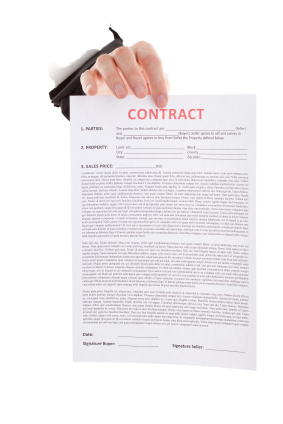“Nobody gave me a copy of…”
 “Nobody gave me a copy of…
“Nobody gave me a copy of…
By John Cottrell
the lease during escrow!”…“The lease you had was with the previous owner”… “I didn’t sign any lease”… “All contracts were canceled when I purchased the property.” These are some of the statements heard by laundry service companies from new owners of apartment buildings.
Purchasing a multi-family property can be an exciting, yet challenging endeavor. There is the loan process, the seller, the residents, due diligence, escrow, paperwork galore, etc. Keeping informed about everything involved in the process is a daunting task at best for a prospective buyer.
It can also create difficult times for a laundry service vendor who gets to explain to a new owner that they have the right to continue to provide their services at the property for several years.
There appears to be a myth about the following two things “automatically” canceling laundry contracts: 1) when a property is sold, and 2) when a property is purchased through a foreclosure. Neither of those offers such assurance. I am hopeful that this article will assist prospective owners in finding out about the possibility and validity of an existing lease BEFORE escrow closes.
There are 3 basic types of notice indicating that there may be an existing lease for the laundry space. Actual notice—the prospective buyer knows of the existence of the lease. This is the case in most purchases. The buyer may receive information about, or a copy of the lease, from the seller, their agent, the escrow or title company, etc. Constructive notice—The lease may have been recorded in a County Recorder’s Office. The recorded information should come up in a title search. Note: Although the title search should show the existence of a lease, it may not give the entire terms of the lease. The laundry vendor should be contacted to have a copy of the entire lease put in the escrow. Inquiry notice—Most laundry vendors have signs in the laundry rooms and/or on the machines with their name, phone numbers, etc. California law is straightforward in saying that this clear and apparent possession gives the prospective buyer an affirmative duty to inquire as to the basis under which the vendor is in possession of the laundry space. When doing due diligence and walking the property, the laundry facilities should not be ignored.
Let’s briefly discuss foreclosures. Not all leases are extinguished by a foreclosure process! Generally speaking, a lease is extinguished if that lease is subordinate to the foreclosed deed of trust. In a case where the lease is dated prior to the note that was foreclosed upon, the lease is generally considered senior, not subordinate to the foreclosed deed of trust. The lease would still be valid and in full force and effect. Again, not every case is clear-cut, and there may be other circumstances to be considered, but this a dependable “rule-of-thumb” tool.
Generally speaking, laundry space leases “carry with the land”. If a new owner comes in, they are bound by the terms of the laundry lease currently in place. They are similar to the rental leases with the residents. A purchaser cannot arbitrarily go in and cancel all of the leases the residents had entered into with the previous owner.
There are cases where a purchaser of a property thinks the lease is not binding, and the vendor contends that it is. In this case, the property owner should not remove the vendor’s equipment. (Just like the fact that you cannot go into an apartment unit and throw all of the resident’s belongings out). THE LAW MANDATES PROPER LEGAL PROCESS BE FOLLOWED, I.E., AN UNLAWFUL DETAINER ACTION.
“Self-help” remedies, such as denying residents and the laundry service company access to the facilities, or removing the equipment are not recommended, nor legal. These actions could force the vendor to file a Forcible Detainer action, which could include recovering possession of the premises, actual damages, additional damages allowed by statute, attorney’s fees under the lease, and other relief allowed by law. Laundry service vendors would normally be more interested in discussing an amicable solution than proceed with litigation; however, they have the lawful right to enforce the terms of their lease.
Bottom Line—If you cannot work something out with the vendor, get dependable legal advice to help you proceed accordingly. Contacting an attorney with experience in “contract law” is recommended and may save you time, energy and money in the long run.
The information in this article is intended to help prospective buyers with one phase of the sale that does not always get attention when looking at the “big picture”. It can also help provide a smooth transition between the laundry service vendor and new owner.
Should you have any questions about your current lease, please feel free to contact me for general assistance.
Bio: John Cottrell is the General Manager for All Valley Washer Service, a leading coin and card-operated laundry service company servicing multi-family properties throughout ALL of California for over 57 years. Mr. Cottrell has been with the company for 26 years. If you have any questions regarding this article, please contact him at john@allvalleywasher.com.



